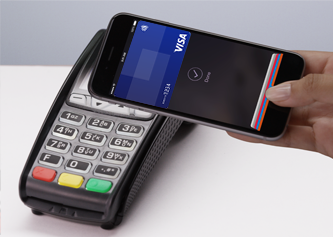Visa and MasterCard Unveil Features to Combat Cyberattacks
February 17, 2015
As concerns continue to rise regarding credit card theft and data breaches, Visa and MasterCard have separately announced new plans to increase the security of their customer data. The world’s two largest payment networks will expand their cybersecurity measures for online transactions through new tokenization and biometrics verification technologies. The announcements coincide with increased efforts by the federal government and numerous industries to combat future cyberattacks.
 Concerns have been on the rise in the wake of recent high-profile breaches against major names such as Target, Sony, JPMorgan Chase and Anthem.
Concerns have been on the rise in the wake of recent high-profile breaches against major names such as Target, Sony, JPMorgan Chase and Anthem.
Visa’s Token Service replaces traditional cardholder info with a unique series of numbers to validate identity. The service launched on Apple devices, enabling users to pass their iPhones by a wireless reader and provide a fingerprint to complete transactions. Visa plans to bring the Token Service to additional device manufacturers.
“Visa said it also plans to tokenize online transactions for retailers that use its Visa Checkout service, including Gap Inc. and Orbitz Worldwide Inc.,” reports The Wall Street Journal. “By getting rid of the sensitive card information, banks and merchants can leave hackers with nothing of value to steal if they break into their computer servers.”
MasterCard is planning a biometrics pilot program to evaluate facial and voice recognition in addition to fingerprint matching technology. Both companies joined forces last year to form a group intended to fast-track the adoption of EMV chip tech to improve security.
“In chip technology, which many countries have already implemented, the magnetic strip found in credit and debit cards is replaced by a smart chip that stores customer data,” explains WSJ. “It is estimated that half of all cards will be chip-enabled by the end of the year, according to MasterCard. Both Visa and MasterCard had originally set an October 2015 deadline for retailers to adopt the chip technology.”

No Comments Yet
You can be the first to comment!
Sorry, comments for this entry are closed at this time.